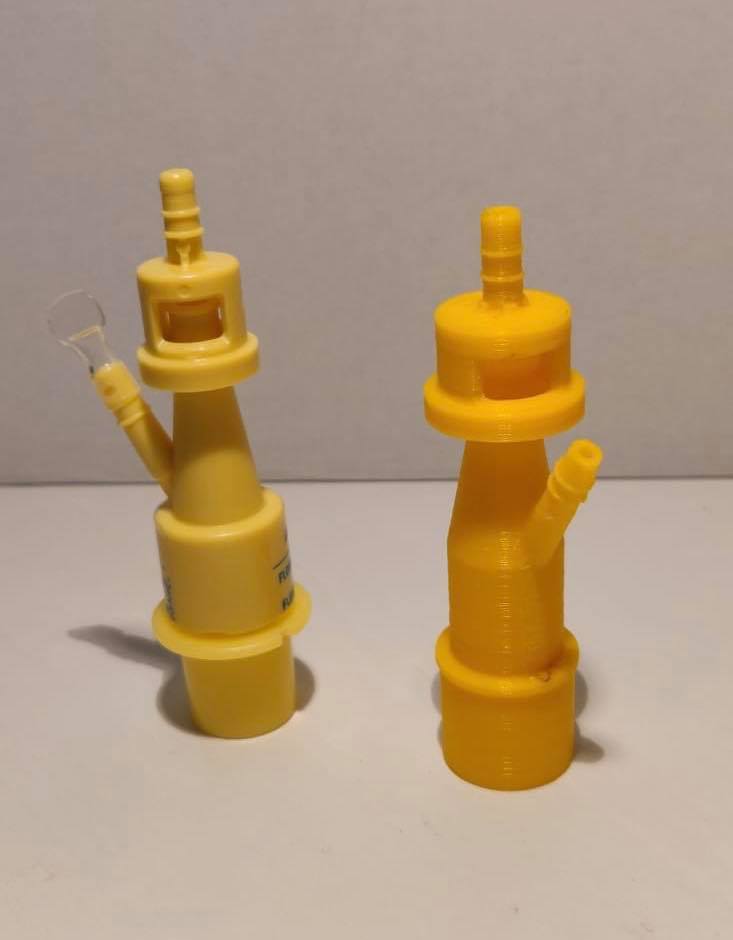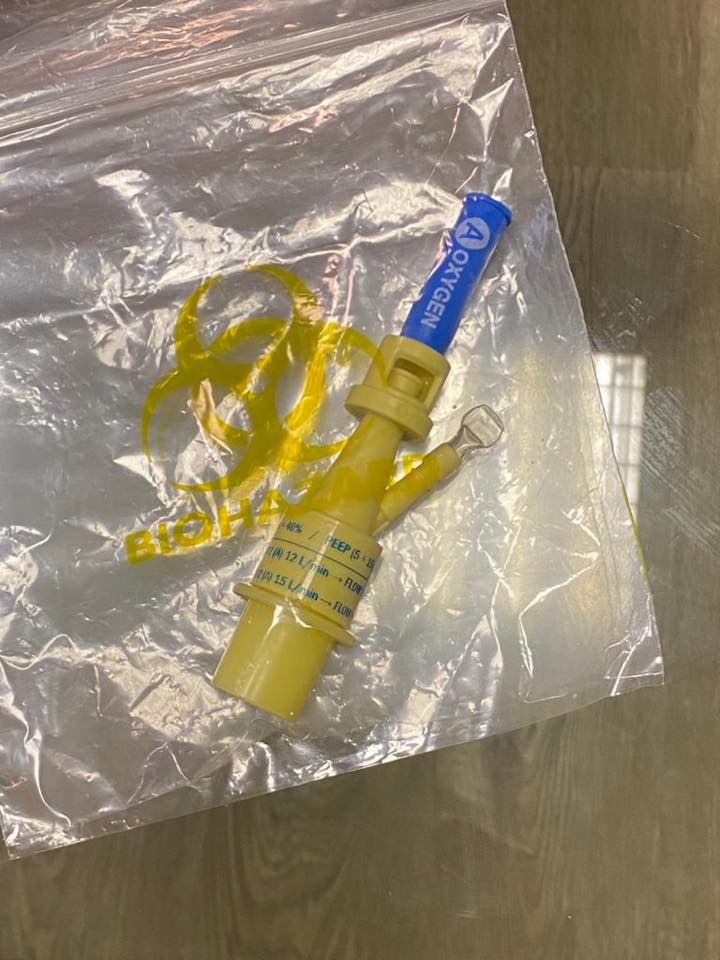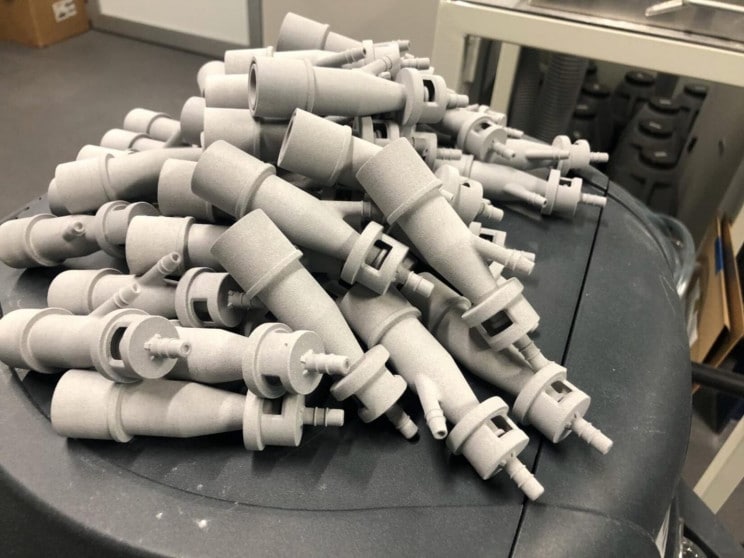Italy (Brescia)
“We have to work together to stop this pandemic. All of us have to stay safe and have to use our skills to help those who need it.” – Michele Fiani, Lonati SpA
This is an example of how collaboration can be crucial. When one Italian hospital ran out of valves for respiratory machines needed as more and more patients were hospitalised with COVID-19, local manufacturers stepped in to 3D print replacements.
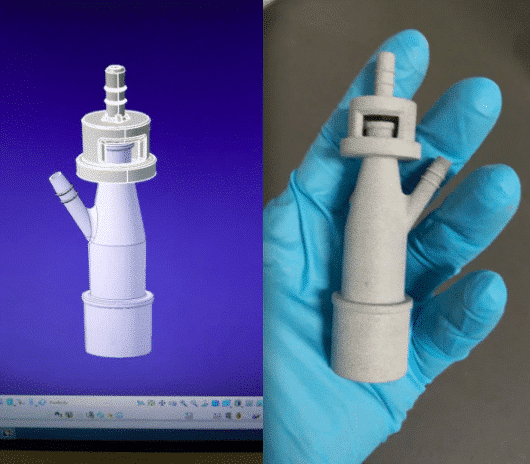
The supply chain was broken, people and 3D printing rose to the occasion.
‘The community, made of a hospital, a newspaper, a team of professionals, made a race against time and saved lives. That’s it.’ – Cristian Fracassi, Isinnova
It started with a call from Nunzia Vallini, a journalist at a newspaper in Brescia, a provincial capital in northern Italy. On 13 March 2020, she explained to Massimo Temporelli, founder of the digital manufacturing lab FabLab in Milan, the problem she had learned about: A hospital in Chiari, a small city near the capital, was running out of valves for reanimation devices – —also called resuscitation devices or respiratory machines – which help patients breathe by mechanically ventilating their lungs. The company that supplies these valves couldn’t send replacements in such a short time, and people were dying.
Massimo, who is based in Milan, eventually reached out to Cristian Fracassi, founder and CEO of engineering company Isinnova. He then contacted Michele Faini, an expert in 3D print manufacturing and a research and development designer at Lonati SpA, a manufacturing company in Brescia. The two have collaborated before, and they worked together to design the valves, which help mix oxygen with air and are an important part of the respirator system.
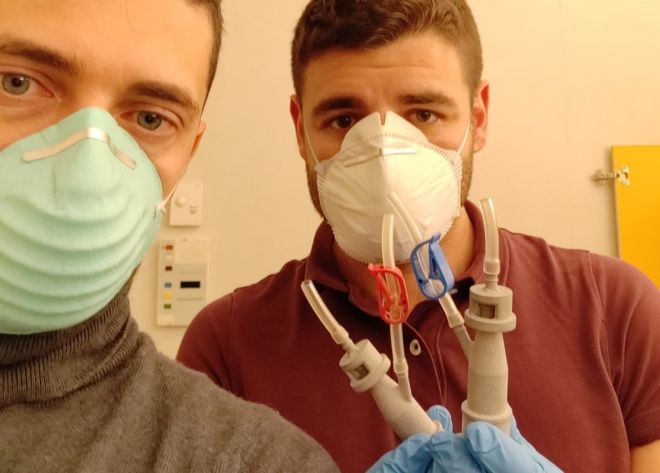
The hospital supplier didn’t want to give these manufacturers information about the valves’ design, Michele told Fast Company, but they were able to ‘reverse engineer’ the design themselves.
Reverse engineering: a man-made object is deconstructed to reveal its designs, architecture, or to extract knowledge from the object.
Though this was the first time Lonati SpA has printed something for the medical sector, Michele says the company’s printers can print with ‘Nylon PA12’, a material that can be sanitised and used for biomedical purposes. “We were ready to print the valves in a couple of hours, and the day after we had 100 valves printed,” Michele says.
The 3D-printed version cost less than €1 each to produce and the prototype took three hours to design, as the hospital provider for these valves refused to release blueprints for them, so they had to make do with best guesses, which thankfully seems to have worked. Patients with COVID-19 at the Chiari hospital are now able to breathe thanks to these 3D printed valves.
“The patients were people in danger of life, and we acted. Period,” Cristian adds in a Facebook post. “We have no intention of profit on this situation.”
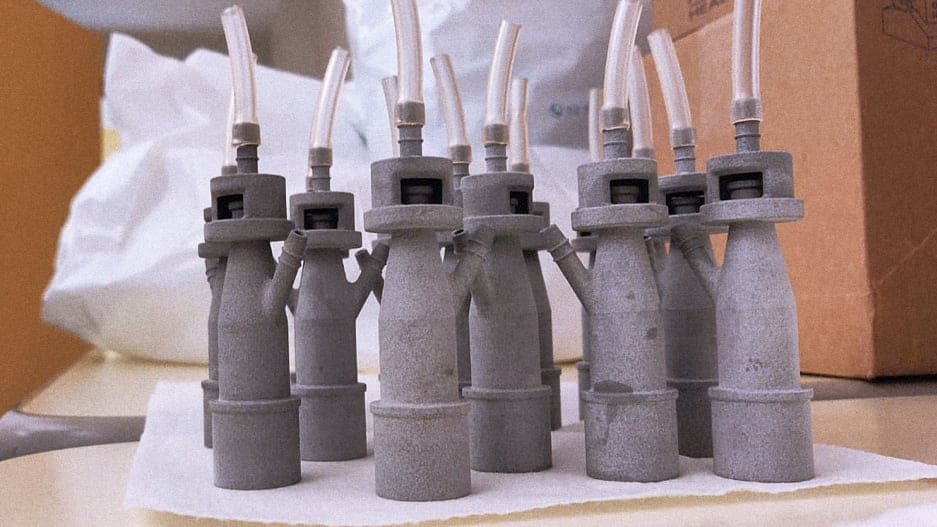
► AtlasAction: Read: More projects related to being resilient in times of coronavirus.
Project leader
Cristian Fracassi, Isinnova; Michele Fiani, Lonati SpA; Nunzia Vallini, Il Giornale di Brescia & Massimo Temporelli, Fab Lab Milan
Support the Atlas
We want the Atlas of the Future media platform and our event to be available to everybody, everywhere for free – always. Fancy helping us spread stories of hope and optimism to create a better tomorrow? For those able, we'd be grateful for any donation.
- Please support the Atlas here
- Thank you!
